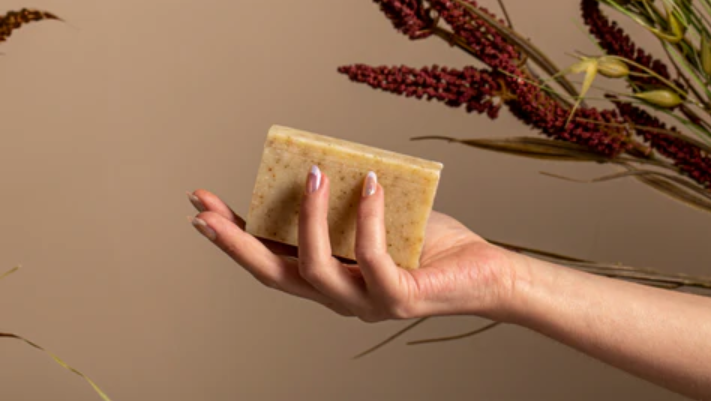Nourishing Care: The Best Natural Soap for Dry Skin

Understanding the Challenges of Dry Skin
Dry skin is a condition that many people experience, characterized by tightness, flakiness, and sometimes even itching or redness. It can be caused by various factors such as cold weather, excessive washing, harsh soaps, or underlying skin conditions. For individuals with dry skin, choosing the right cleansing product is essential because the wrong soap can strip the skin of its natural oils, worsening the problem and leading to discomfort.
Why Soap Choice Matters for Dry Skin
Unlike oily or combination skin, dry skin is more vulnerable to irritation and damage when exposed to harsh cleansers. Regular soaps often contain synthetic ingredients that remove essential lipids from the skin, leaving it feeling parched. This is why selecting a soap specifically designed for dry skin is crucial. A mild, nourishing soap can help restore balance, leaving the skin clean but still hydrated and soft.
The Benefits of Using Natural Soap
Natural soaps are crafted with plant-based oils, herbs, and botanicals that provide both cleansing and moisturizing properties. Unlike mass-produced soaps, which frequently include sulfates and parabens, natural options are free of harsh chemicals. This makes them gentler on dry skin while also delivering nutrients that strengthen the skin barrier. With regular use, natural soap can improve elasticity and prevent the tight, uncomfortable feeling often associated with dryness.
Key Ingredients to Look for in Natural Soap
When looking for soap for dry skin, ingredients are everything. Olive oil is one of the best bases, known for its moisturizing and antioxidant-rich qualities. Shea butter and cocoa butter are also excellent for replenishing hydration. Coconut oil provides gentle cleansing while adding a layer of protection. Essential oils like lavender and chamomile can offer soothing effects, while honey adds natural humectant properties that help the skin retain moisture.
Avoiding Harmful Additives
Dry skin reacts quickly to unnecessary additives, which is why it is important to avoid soaps containing sulfates, artificial fragrances, and synthetic dyes. These substances often strip the skin’s natural oils, leaving it even drier than before. By choosing soaps free from these harmful ingredients, you can significantly reduce the risk of irritation and allow the skin to maintain its natural protective layer.
See also: Premium Dog Food: What Makes It Worth the Investment for Your Pet’s Health
The Importance of pH Balance in Soap
Healthy skin maintains a slightly acidic pH, which supports the natural barrier that protects against bacteria and moisture loss. Many conventional soaps are highly alkaline, which can disrupt this balance and worsen dryness. Natural soaps are often closer to the skin’s natural pH level, making them a safer and more effective option for those struggling with dryness.
Olive Oil-Based Soaps for Hydration
Olive oil has long been used in skincare due to its deeply nourishing and restorative properties. Soaps made with olive oil are ideal for dry skin because they provide a natural source of hydration without clogging pores. They are rich in vitamins A and E, which help repair and protect the skin. By consistently using olive oil-based soap, dry skin becomes more resilient, smooth, and supple over time.
The Tradition of Aleppo Soap for Dry Skin
Aleppo soap is a traditional soap that has been trusted for centuries. Made with olive oil and laurel oil, it is renowned for its ability to nourish, cleanse, and protect even the most delicate skin types. Its natural formulation makes it a perfect match for dry and sensitive skin. Aleppo soap not only cleans but also conditions the skin, leaving it moisturized long after use. This timeless product has remained popular because of its effectiveness and authenticity.
For more options in natural skincare, where you will find high-quality Naturseife trockene Haut that is specifically crafted to restore balance and comfort.
How to Use Natural Soap for Best Results
Even the best soap requires proper use to maximize its benefits. For dry skin, it is advisable to wash with lukewarm water instead of hot water, which can dehydrate the skin further. When applying the soap, gently lather it without vigorous scrubbing. After rinsing, pat the skin dry with a soft towel rather than rubbing. Following up with a nourishing moisturizer immediately after washing can help lock in hydration, making the cleansing routine more effective.
Building a Complete Routine for Dry Skin
While choosing the right soap is important, it should be part of a wider skincare routine. Using natural moisturizers, drinking plenty of water, and avoiding harsh exfoliants are all steps that support hydration. In winter months, using a humidifier can also help maintain skin moisture levels. By combining these practices with the use of natural soap, people with dry skin can achieve healthier, more comfortable, and radiant skin all year round.



